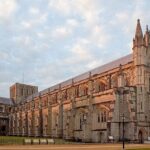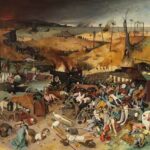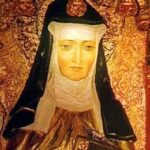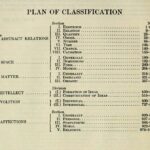![]()
The first printing of the words by Henry Francis Lyte is said to have been in a leaflet printed at Berry Head, Brixham, Devonshire, in Sept., 1847, but otherwise not described; no copy has been found. An early printing of the words is in the Remains of the Late Rev. H. F. Lyte, M.A. (London, 1850), at p. 119; BM and JF.
The poem is there said to be derived from ”Abide with us” (St. Luke xxiv. 29) and at the foot reads: “Berry Head, September, 1847.” Tradition has it that Lyte wrote the words after preaching his last sermon to his congregation at Brixham on Sept. 4, 1847. This is clearly wrong as a letter dated Aug. 25, 1847, includes the hymn, his “latest effusion,” and it seems likely that it was written during his last visit to Berry Head a month or two earlier.
The music by William Henry Monk was first printed in his Hymns Ancient and Modern (London, Preface dated Lent, 1861), as Hymn 14, together with the words, under the title “Evening.” In this edition, published March 20, 1861, there are 273 hymns; the pages are not numbered.
It is not known which of the following two variants is the above edition: one, at BM, has a handwritten date of 1866 and the Contents page does not refer to a “larger edition”; the other, at JF, has a Contents page which does make such a reference. There are other minor differences in the two variants.
Lyte was born at Ednam, near Kelso, Scotland, in 1793, was ordained in 1815 and held a number of ecclesiastical posts, and died at Nice on Nov. 20, 1847.^ Monk was born in Brompton in 1823, became an organist and Professor of Music, and died in 1889 in London.^







